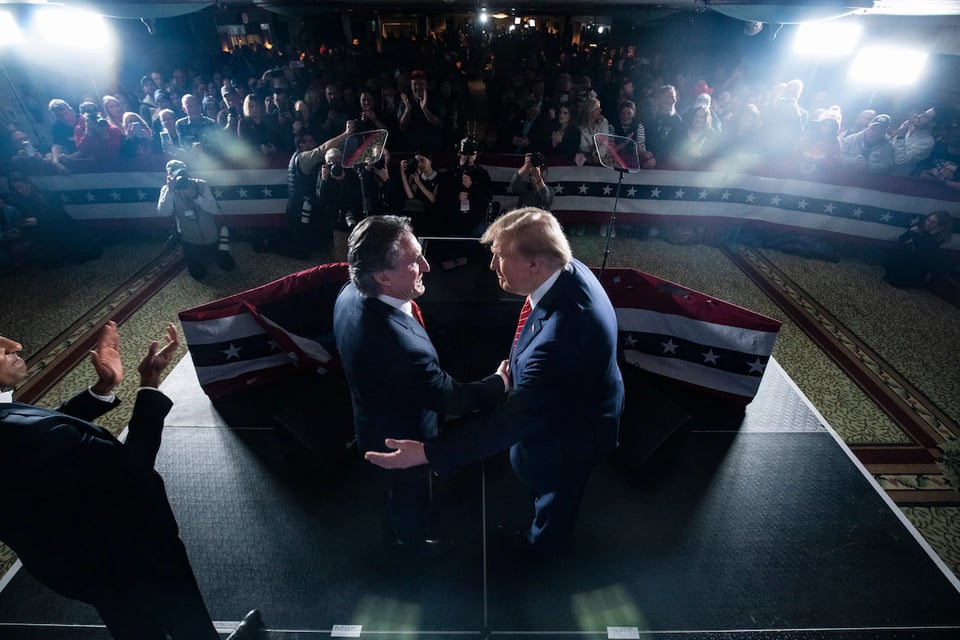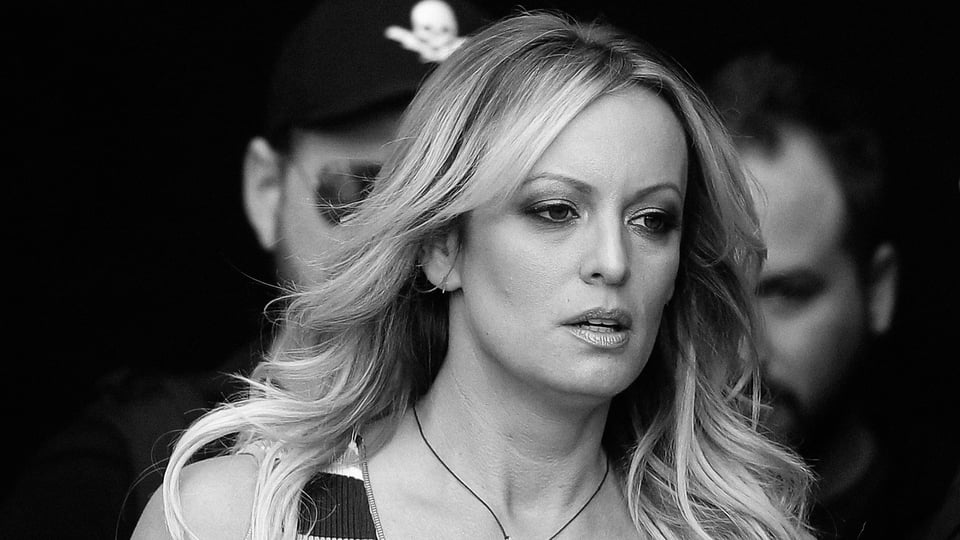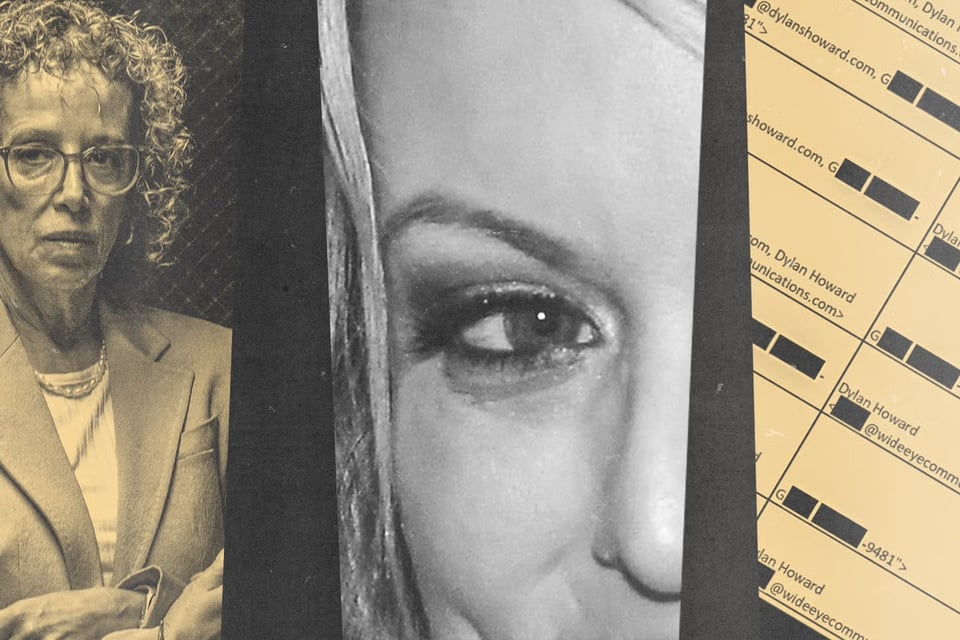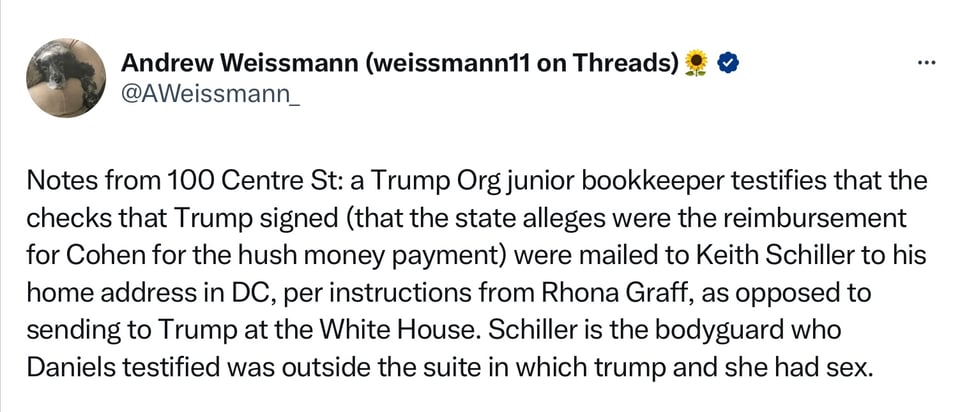Friday, May 10, 2024. Annette’s News Roundup.
I think the Roundup makes people feel not so alone.
To read an article excerpted in this Roundup, click on its blue title. Each “blue” article is hyperlinked so you can read the whole article.
Please feel free to share.
Invite at least one other person to subscribe today! Here 👇 is the link to share for others to subscribe. https://buttondown.email/AnnettesNewsRoundup
Remember: when you share the Roundup, you are fighting Fascism and helping to bring about a Democratic victory in 2024.
_________________________________________________
Biden and Trump on Climate Change.
Share these articles 👇 especially with young people, who want our planet to survive.
Exclusive: Biden gets glowing review on climate amid struggles with young voters.

A glowing new tally of President Biden's environmental record from a progressive coalition signals White House political progress on shoring up the climate movement's restive left flank.
Why it matters: Young climate-conscious voters are part of his base, but some activists have wanted a harder White House line on fossil fuels.
Driving the news: The pro-Democratic group Climate Power's memo, co-released by over 20 groups, credits Biden with 320+ "climate, conservation, public health and clean energy actions."
The intrigue: The youth-led Sunrise Movement, which years ago helped push the "Green New Deal" idea onto the national stage, is among the backers.
The group has warned that Biden risks alienating young voters, and has decried policies that include the approval of the Willow oil project in Alaska.
But it has also cheered steps name-checked in the new memo, like the pause on new LNG export licenses and creation of the American Climate Corps.
What they're saying: "President Biden has delivered critical climate action in his first term," Sunrise Movement campaign director Kidus Girma said in a statement alongside the memo.
But the group cautions that Biden must keep taking "bold" steps.
State of play: Other groups on the memo include Green Latinos, the League of Conservation Voters, Indivisible, and the Sierra Club.
Climate Power tells Axios it plans to use the document as a persuasion tool.
"Our polling shows that when young voters learn about President Biden's record, they move in his favor," Climate Power spokesperson Alex Glass tells Axios.
The analysis says the policies tallied have created over 270,000 jobs and are on a path to creating millions more.
Yes, but: Surveys show Democratic voters want strong steps on climate. But what that means in states that may decide the election — and how much voters connect Biden's climate record to the economy — is unclear.
For instance, Pennsylvania produces tons of natural gas, and its Democratic senators have misgivings about Biden's liquefied natural gas policy.
Or consider writer Josh Barro bashing the "zombie idea" that Biden's vulnerability is among young activists who want Biden to move left on climate and Gaza.
In reality, the problem is the "less-engaged, less-ideological voter who's upset about inflation," he writes.
The bottom line: The take-o-sphere has plenty of dueling analyses about whether climate will actually be salient in 2024.
But if the kids think Biden's all right, it could help politically. (Axios)
Trump embraces the end to fighting climate change.
Buy my policy, he made clear in a “remarkably blunt and transactional pitch” to some of the country’s top oil executives at his Mar-a-Lago Club last month.

Former president Donald Trump shakes hands with North Dakota Gov. Doug Burgum (R), who is leading the Trump campaign’s development of its energy policy, at a rally in Laconia, N.H., on Jan. 22. Burgum is on the short list of possible Trump running mates.
As Donald Trump sat with some of the country’s top oil executives at his Mar-a-Lago Club last month, one executive complained about how they continued to face burdensome environmental regulations despite spending $400 million to lobby the Biden administration in the last year. Trump’s response stunned several of the executives in the room overlooking the ocean: You all are wealthy enough, he said, that you should raise $1 billion to return me to the White House.
At the dinner, he vowed to immediately reverse dozens of President Biden’s environmental rules and policies and stop new ones from being enacted, according to people with knowledge of the meeting, who spoke on the condition of anonymity to describe a private conversation.
Giving $1 billion would be a “deal,” Trump said, because of the taxation and regulation they would avoid thanks to him, according to the people. Trump’s remarkably blunt and transactional pitch reveals how the former president is targeting the oil industry to finance his reelection bid. At the same time, he has turned to the industry to help shape his environmental agenda for a second term, including the rollbacks of some of Biden’s signature achievements on clean energy and electric vehicles.
The contrast between the two candidates on climate policy could not be more stark. Biden has called global warming an “existential threat,” and over the last three years, his administration has finalized 100 new environmental regulations aimed at cutting air pollution and greenhouse gas emissions, restricting toxic chemicals, and conserving public lands and waters. In comparison, Trump has called climate change a “hoax,” and his administration weakened or wiped out more than 125 environmental rules and policies over four years.
In recent months, the Biden administration has raced to overturn Trump’s environmental actions and issue new ones before the November election. So far, Biden officials have overturned 27 Trump actions affecting the fossil fuel industry and completed 23 new actions affecting the sector, according to a Washington Post analysis. The Interior Department, for instance, recently blocked future oil drilling across 13 million acres of the Alaskan Arctic.
Despite the oil industry’s complaints about Biden’s policies, the United States is now producing more oil than any country ever has, pumping nearly 13 million barrels per day on average last year. ExxonMobil and Chevron, the largest U.S. energy companies, reported their biggest annual profits in a decade last year.
Yet oil giants will see an even greater windfall — helped by new offshore drilling, speedier permits and other relaxed regulations — in a second Trump administration, the former president told the executives over the dinner of chopped steak at Mar-a-Lago.
Trump vowed at the dinner to immediately end the Biden administration’s freeze on permits for new liquefied natural gas (LNG) exports — a top priority for the executives, according to three people present. “You’ll get it on the first day,” Trump said, according to the recollection of an attendee.
The roughly two dozen executives invited included Mike Sabel, the CEO and founder of Venture Global, and Jack Fusco, the CEO of Cheniere Energy, whose proposed projects would directly benefit from lifting the pause on new LNG exports. Other attendees came from companies including Chevron, Continental Resources, Exxon and Occidental Petroleum, according to an attendance list obtained by The Post.
Trump told the executives that he would start auctioning off more leases for oil drilling in the Gulf of Mexico, a priority that several of the executives raised. He railed against wind power, as The Post previously reported. And he said he would reverse the restrictions on drilling in the Alaskan Arctic.
“You’ve been waiting on a permit for five years; you’ll get it on Day 1,” Trump told the executives, according to the recollection of the attendee.
At the dinner, Trump also promised that he would scrap Biden’s “mandate” on electric vehicles — mischaracterizing ambitious rules that the Environmental Protection Agency recently finalized, according to people who attended. The rules require automakers to reduce emissions from car tailpipes, but they don’t mandate a particular technology such as EVs. Trump called them “ridiculous” in the meeting with donors.
The fossil fuel industry has aggressively lobbied against the EPA’s tailpipe rules, which could eat into demand for its petroleum products. The American Fuel & Petrochemical Manufacturers, an industry trade group, has launched a seven-figure campaign against what it calls a de facto “gas car ban.” The campaign includes ads in battleground states warning that the rule will restrict consumer choice.
“Clearly, if you are producing gasoline and diesel, you want to make sure that there’s enough market there,” said Stephen Brown, an energy consultant and a former lobbyist for Tesoro, an oil refining company. “I don’t know that the oil industry would walk in united with a set of asks for the Trump administration, but I think it’s important for this issue to get raised.”
Although the repeal of the EPA rule would benefit the fossil fuel industry, it would probably anger the auto industry, which has invested billions of dollars in the transition away from gasoline-powered cars. Many automakers are under increasing pressure to sell more EVs in Europe, which has tightened its own tailpipe emissions rules, and they are eager to avoid a patchwork of regulations around the globe.
“Automakers need some degree of regulatory certainty from government,” said John Bozzella, president and CEO of the Alliance for Automotive Innovation, which represents Ford, General Motors, Stellantis, Toyota and other car companies.
“What has emerged instead is a wholesale repeal… and then reinstatement… and then repeal again of regulations every four or eight years,” Bozzella said in an email.
Biden’s EV policies have also sparked opposition in rural, Republican-led states such as North Dakota, where there are far more oil pump jacks than charging stations. A key figure leading the Trump campaign’s development of its energy policy is North Dakota Gov. Doug Burgum(R), who has been talking extensively to oil donors and CEOs.
At a fundraiser on Saturday in Palm Beach, Fla., Burgum told donors that Trump would halt Biden’s “attack” on fossil fuels, according to a recording of his remarks obtained by The Post.
“What would be the No. 1 thing that President Trump could do on Day 1? It’s stop the hostile attack against all American energy, and I mean all,” Burgum said. “Whether it’s baseload electricity, whether it’s oil, whether it’s gas, whether it’s ethanol, there is an attack on liquid fuels.”
Burgum also criticized the Biden administration’s policies on gas stovesand vehicles with internal combustion engines, falsely claiming that they would prevent consumers from buying both technologies.
“They’ve got some liberal idea about what products we need,” Burgum said. “You all need EV cars. You don’t need internal combustion. We’ll decide what kind of car you’re going to drive, and we’re going to regulate the other ones out of business. I mean, it’s just in every industry, not just in cars, not just in energy. They’re telling people what stoves you can buy. This is not America.”
While the Energy Department recently set new efficiency standards for gas stoves, they would not affect the stoves in people’s kitchens or those currently on the market. The Biden campaign declined to comment for this story.
Burgum has pushed harder to address climate change than many other Republicans, setting a goal in 2021 for North Dakota — the third-largest oil-producing state — to become carbon-neutral by 2030. He has stressed, however, that the goal won’t be achieved via government mandates or the elimination of fossil fuels.
Burgum’s approach to climate policy makes him an unusual messenger for Trump, who has falsely called global warming a hoax invented by China. But many oil executives view Burgum — a possible contender to lead the Energy Department in a second Trump term — as sympathetic to their concerns, and he has cultivated deep support among oil donors.
Despite Trump’s huge fundraising ask, oil donors and their allies have yet to donate hundreds of millions to his campaign. They havecontributed more than $6.4 million to Trump’s joint fundraising committee in the first three months of this year, according to an analysis by the advocacy group Climate Power. Oil billionaire Harold Hamm and others are scheduling a fundraiser for Trump later this year, advisers said, where they expect large checks to flow to his bid to return to office.
One person involved in the industry said many oil executives wanted Florida Gov. Ron DeSantis or another Republican to challenge Biden. But now that Trump is the nominee, this person said, they are going to embrace his policies and give.
Dan Eberhart, chief executive of the oil-field services company Canary and a Trump donor, said the Republican onslaught of donations was not surprising.
“Biden constantly throws a wet blanket to the oil and gas industry,” Eberhart said. “Trump’s ‘drill baby drill’ philosophy aligns much better with the oil patch than Biden’s green-energy approach. It’s a no-brainer.”
Alex Witt, a senior adviser for oil and gas with Climate Power, said Trump’s promise is he will do whatever the oil industry wants if they support him. With Trump, Witt said, “everything has a price.”
“They got a great return on their investment during Trump’s first term, and Trump is making it crystal clear that they’re in for an even bigger payout if he’s reelected,” she said. (The Washington Post).
_________________________________________________
Misogyny was alive and well at 100 Centre Street yesterday.
Trump’s Misogyny and Stormy Daniels - The Atlantic.

It’s not that Trump bore any malice toward Daniels; it’s that she mattered to him only as a vehicle to sex.
Donald Trump has often loved to talk about his sexual prowess. He boasted to Access Hollywood’s Billy Bush about grabbing women’s crotches nonconsensually. He called the New York Post and begged them to run a headline bragging that Marla Maples, then his girlfriend and later his second wife, considered their relationship the “Best Sex I’ve Ever Had!” He braggedthat he had so much sex that avoiding sexually transmitted diseases was “my personal Vietnam.”
But the former president is suddenly shy about sex this week. It’s the third week of his trial in Manhattan on charges that he falsified business records to cover up hush money paid to a woman who says she had sex with him. That woman is Stormy Daniels, a porn actor and director, and today she testified in the trial, much to Trump’s consternation.
At the start of proceedings today, Trump’s lawyers fiercely objected to Daniels’s presence—particularly to the danger that she would divulge “any details” of sex between the two. Trump also angrily posted and then deleted a missive on Truth Social about Daniels testifying. (He denies that any sex occurred.) Daniels has indeed been nauseatingly graphic about the encounter in other forums, but a prosecutor assured Judge Juan Merchan that the witness would not describe any “genitalia.”
And she did not, although she did at one point describe the position in which she says they had sex. Trump’s lawyers, and sometimes Merchan, of his own volition, repeatedly objected to prosecutors’ lines of questioning or to Daniels’s answers. The vibes were weird all around. Daniels had to be repeatedly asked to speak more slowly, by both the prosecutor and the judge. Reporters in the courtroom observed that Merchan seemed more on edge than at any other point in the trial so far.
What Daniels described was less graphic and prurient, but perhaps more repulsive and revealing about Trump. My colleague Quinta Jurecic wrote at the outset of the case that the real subject of the trial was Trump’s misogyny, raising the question: “Is this really the kind of man you want to be your president?” The day’s testimony was a window into just what kind of man that is, one dripping with sexual entitlement and presumption.
Daniels recounted a dinner appointment with Trump in Lake Tahoe in 2006 that she thought was about either socializing or business; it dawned on her too late that the goal for him was sex.
One clear implication from Daniels’s testimony was that for Trump, this was nothing unusual. He simply expected that if a woman was around him, he was getting laid—not without consent, exactly, but not entirely with it, either. There was no conversation, Daniels testified: “I didn’t say anything at all.” After all, as Trump said in the Access Hollywood tape, “when you’re a star, they let you do it.” In the same tape, he bitterly recalled hitting on another woman unsuccessfully. The failure rankled because it ran against his usual pattern.
The two met at a golf tournament. Trump’s bodyguard approached her after an introduction and asked if she’d have dinner with Trump. She demurred, profanely, but came around because she wanted to get out of another obligation. Besides, her publicist asked her, “What could possibly go wrong?”
Daniels was directed to meet Trump in his penthouse room. This should have been the first sign of trouble: She said he met her wearing silk or satin pajamas that reminded her of Hugh Hefner. She asked him to get dressed in normal clothes, and he did.
Their conversation over dinner sounded, to be blunt, weird. Among the topics were how often Daniels was tested for STDs, and what protocols were for filming (her company always required condoms). In what maybe should have been another warning sign, they also talked about Trump’s sleeping arrangements with his third and current wife, Melania (Daniels said he said they didn’t even sleep in the same room).
At one point, Daniels scolded Trump. “Are you always this rude? Are you always this arrogant and pompous?” she asked. (No one would have to ask today.) “Like you don’t even know how to have a conversation.” But she also testified that unlike many other people, he seemed less interested in the salacious side of the porn business and more curious about the financials. “He was very interested in a lot of the business aspects of it, which I thought was very cool,” she said. “These were very thought-out business questions.”
Eventually, Daniels was ready to head out and went to the bathroom. But when she emerged, she found Trump on the bed, in a T-shirt and boxers. He was between her and the door. She moved to leave, but he blocked her—not in a threatening manner, she said, though she also noted that he was larger than she was and that she was aware of the power dynamic. The next thing she knew, they were having sex.
Trump had gotten what he wanted. The two kept in touch for years, with him repeatedly dangling but never delivering on the prospect of Daniels appearing on The Apprentice. She said he never asked her to keep quiet about their hook-up, though she also didn’t discuss it widely, she said, because she was ashamed. It was only later, as Trump was running for president in 2016, that her hush-money deal was arranged.
Last year, my colleague Sophie Gilbert wrote that a second Trump presidency would produce four more years of unchecked misogyny. “I don’t believe Donald Trump hates women. Not by default, anyway,” she wrote. “The misogyny that Trump embodies and champions is less about loathing than enforcement: underscoring his requirement that women look and behave a certain way, that we comply with his desires and submit to our required social function.” Daniels’s account of her encounter with him showed exactly how that can work. It’s not that Trump bore any malice toward Daniels (that came later); it’s that she mattered to him only as a vehicle to sex.
By now, Trump has gotten a great deal more than he expected or wanted that day in his Tahoe penthouse. Following a lunch break today, his attorneys argued for a mistrial on the basis of Daniels’s answers. Merchan refused but said several times that some things that came up would have been “better left unsaid.” The newly demure defendant would surely agree. (The Atlantic).
The Grim Cross-Examination of Stormy Daniels Could Double as a Class in How the Law Mistreats Women.

“Court is not normally like this—this is a TV trial,” one veteran court reporter said to me Thursday morning, during a 15-minute break in cross-examination. It was my first day in court for the Trump hush money trial, and it seemed everyone in the media had really shown up. Of course they had—today was the day that the defense would decide what to do with Stormy Daniels.
I was here because my colleague, Jeremy Stahl, who has been covering the trial, suggested it might be a good day for me to come. I’ve spent a lot of my time at Slate writing about women, gender, what men do to women, and how complicated it all can be.
Stormy Daniels’ story has been fascinating to me for the same reasons it’s been fascinating to everyone. She’s a self-assured porn actor who admitted to an “affair” with the president while simultaneously expressing disgust with him. For a while, back in 2018, she was a main character for the resistance movement, as she embarked on a “Make America Horny Again” strip club tour across the U.S. More recently, she has been the subject of a devastating documentary that paints her tale in a darker light, documenting the awfulness of both her experience with attorney Michael Avenatti, who is in prison for stealing from his clients (including Daniels), and her relationship with Trump and its aftermath. Take the “Make America Horny Again” tour name—she despised it, she said emphatically multiple times on the stand.
How would the defense treat this witness? Remember, this isn’t a case about sexual assault. This isn’t even really a case about whether or not Stormy Daniels and Donald Trump had sex—it’s a case about campaign finance misfiling, elevated to election fraud. And yet, the Trump defense team, led by Susan Necheles, a petite woman in a dusty-rose suit, interrogated Stormy Daniels as if this were a class on how the law has historically treated women speaking up about sexual assault. She attacked her for “misremembering” details that were so minor as to be absurd, accused Daniels of consistently changing her story, and tried to drag Daniels as both a slut and a money-grubber. It was almost impressive how she managed to be so pedantic and also bullying at the same time.
Daniels was much calmer and much more composed Thursday than she was on Tuesday, according to those who were there. Maybe part of that had to do with the fact that she had already gotten through the hard part of telling her story, sex and all, point by point, at least once. Necheles’ line of questioning was also astonishingly simplistic and, frankly, petty. There were a few minor details that Necheles kept pressing Daniels on, suggesting that she had changed those and therefore maybe her whole account was moot: who actually asked her to dinner and took her number, Trump himself or his bodyguard; whether or not they actually ate dinner; and whether Daniels arrived to the hotel by car or on foot.
These discrepancies are so unbelievably minor that it was difficult to really understand what Necheles was even going for with this—whether Daniels remembered if she walked to the hotel or took a car there doesn’t seem like the kind of detail that would be seared in one’s memory, even around a weird sexual encounter. More to the point, the examples of these discrepancies seemed to stem largely from other people’s write-ups of the story, not Daniels’ own. “I don’t control what parts they put in magazines,” she said at one point, making the line of questioning seem both weak on the merits and a bit absurd.
More important is the question of whether the sex was something less than consensual. It is a bit absurd to me that Trump’s defense team would even want to veer into the territory of asking anything along the lines of “But actually ma’am, did our client rape you?”—and yet, that was the road Necheles ended up going down, again trying to catch Daniels in a lie.
The thing is, there actually is a discrepancy in how Daniels has reported the consensual nature of the encounter over time. When she first started telling her story to the media, which happened most officially in both 2016 (though it wasn’t published then) and 2018 (when it eventually was), Daniels was adamant about the fact that this wasn’t a story of rape. One of the people she told this story to both times was my former Slate colleague Jacob Weisberg, who wrote about it in 2018. “She didn’t allege any kind of abuse, insisting she was not a victim,” Weisberg wrote. “The worst Trump had done, she said, was break promises she’d never believed he would fulfill.”
Remember, the winter of 2018 directly followed the fall of 2017, when the Harvey Weinstein story broke open #MeToo. Daniels wanted to be clear that her story wasn’t one of those kinds of stories. As is her way, she seemed to make light of the situation, making fun of Trump for his obsession with sharks, expertly denigrating his sexual prowess, making clear that she did this not really because she liked him much, but because he could be useful to her.
The story that she’s told—most clearly in her documentary, but also here in this courtroom—is a little bit different. She never said no, but she was definitely not expecting the situation to turn sexual. She was shocked when she walked out of the bathroom to see him in his underwear. She felt lightheaded, and they ended up on the bed, and exactly how it happened was unclear.
Does this make Stormy Daniels a noncredible witness? That her story went from a slightly humorous and self-deprecating tale about an affair into something that she would never have initiated herself, and probably didn’t want to happen at all? When Necheles asked Daniels, “Did Trump do something that made you feel like you had to have sex with him?” her answer was a slightly heartbreaking “My own insecurities made me feel this way.” In Daniels’ effort to dissociate her story from #MeToo, she seems to have missed that #MeToo aimed to unpack all of the different ways sexual encounters can end up being less consensual than they should be—and yet, her story still perfectly illustrates those exact specifics.
Toward the end of her questioning, Necheles brought out the big guns, the line of questioning that everyone had been wondering if she would use. “You’ve acted in 200-ish movies, right?” Daniels corrected the number slightly downward, to 150. “But according to you, seeing a man sitting on a bed in a T-shirt and boxer shorts, you got lightheaded?” Necheles prodded.
The obvious implication here was that Stormy Daniels, a porn star, should essentially be a vending machine for whoever wants to have sex with her. Daniels was horrified at the implication, almost sputtering the obvious answer: that “when you’re not expecting it, it’s a different reaction.”
It was the second time Necheles had tried to throw Daniels’ porn career in her face. Earlier, she had suggested that Daniels’ experience writing porn movies had provided her with the experience she needed to make up her story about Trump entirely. “So you have a lot of experience in making phony stories about sex appear to be real?” Necheles had asked, in a moment that seemed to provoke a collective inhale throughout the courtroom.
Daniels’ response was both a rebuttal and a burn: “If the story wasn’t true, I would have written it to be a lot better.” (Susan Matthews in Slate).
___
One more thing from 100 Centre Street, New York City.

_________________________________________________
Barron Trump is no longer off limits.
Former president Donald Trump’s youngest son, Barron Trump, is making his political debut: The 18-year-old has been named to the slate of Republican Party delegates that will represent Florida at the party’s national convention this summer. https://t.co/83Ms6xbGaO
— The Washington Post (@washingtonpost) May 9, 2024
_________________________________________________
Hillary on Morning Joe yesterday.
Secretary of State Hillary Clinton - “the only choice for women is Joe Biden.”
Shareable and wise. Share it!
.@HillaryClinton: "There are people who want to turn the clock back on women... They want more control over women— Any woman who has any sense of self respect... and values freedom needs to understand there's only one choice in this election, and that's Joe Biden." pic.twitter.com/vPSrgocAua
— Morning Joe (@Morning_Joe) May 9, 2024
Producer and former Secretary of State Hillary Clinton and actress, composer, and playwright Shaina Taub discuss their new Broadway musical, “Suffs.” 👇
Eve and I saw and loved Suffs. Hope you see it soon.
_________________________________________________
Smile at this news. 👇
Deaf baby hears for the first time after U.K. gene therapy trial.
A baby girl born with profound genetic deafness can now hear unaided after receiving a “groundbreaking” gene therapy trial, Britain’s National Health Service said Thursday.
Opal Sandy, an 18-month-old from England, is the youngest child to come close to “normal hearing levels” in a gene therapy trial to aid her genetic deafness.

LONDON — A baby girl born with profound genetic deafness can now hear unaided after receiving a “groundbreaking” gene therapy trial, Britain’s National Health Service said Thursday.
Opal Sandy, an 18-month-old from Oxfordshire, England, is the first patient treated in a global gene therapy trial that is showing “mind-blowing” results, Addenbrooke’s Hospital in Cambridge said in a statement. Opal is “the first British patient in the world and the youngest child to receive this type of treatment,” the hospital said.
The treatment is already having practical results, the hospital said: Opal can now respond to her parents’ voices and can communicate words such as “Dada” and “bye-bye.”
“When Opal could first hear us clapping unaided it was mind-blowing,” her mother, Jo Sandy, said in a statement. “We were so happy when the clinical team confirmed at 24 weeks that her hearing was also picking up softer sounds and speech.”
Her father, James Sandy, said that it was “already making a difference to our day-to-day lives, like at bath-time or swimming,” he said. “… We feel so proud to have contributed to such pivotal findings, which will hopefully help other children like Opal and their families in the future.”
The results are another example of the potential of gene therapies, which use the insertion of genetic material to treat diseases.
Opal, like her elder sister, was born deaf because of a rare genetic condition known as auditory neuropathy, which is caused by the disruption of nerve impulses traveling from the inner ear to the brain, the hospital said. However, within four weeks of having the gene therapy infusion to her right ear, Opal “responded to sound,” it added. Now, at 24 weeks after treatment, clinicians have been able to confirm “close to normal hearing levels for soft sounds,” even including “whispering, in her treated ear.”
Manohar Bance, chief investigator of the trial and an ear surgeon at Cambridge University Hospitals NHS Foundation Trust, said the results were “spectacular and better than I expected.”
“This is hopefully the start of a new era for gene therapies for the inner ear and many types of hearing loss,” he added.
Auditory neuropathy can be due to a variation in a gene, known as the OTOF gene, which produces a protein needed to allow the inner hair cells in the ear to communicate with the hearing nerve. According to Britain’s NHS, about 20,000 people across Britain, Germany, France, Spain and Italy are deaf because of a mutation in the OTOF gene.
This type of hearing loss is not commonly detected until children are about 2 or 3 years of age, when a delay in speech is likely to be noticed, the Cambridge hospital said. However, Opal’s was detected earlier, when she was just 3 weeks old, as her older sister also has the same genetic condition.
The trial that Opal was a part of began in May last year and was sponsored by U.S. biotechnology company Regeneron. It is continuing to enroll patients in the study in the United States, Britain and Spain, it said.
The procedure involved Opal being given an infusion via an injection into her right cochlea during surgery, containing a modified virus known as AAV1, which acts as a “working copy of the OTOF gene.” A cochlear implant was also fitted at the same time to her left ear.
Congenital deafness, hearing loss present at birth, is a “significant unmet medical need that affects approximately 1.7 out of every 1,000 children born” in the United States, according to Regeneron. “While hearing aids and cochlear implants can amplify sound to improve hearing for individuals with a range of hearing loss, these devices do not currently restore the full spectrum of sound,” it added.
The news has been welcomed in Britain, making national headlines, but it could have a global impact.
“Many families will welcome these developments, and we look forward to learning about the long-term outcomes for the children treated,” Martin McLean of Britain’s National Deaf Children’s Society said in an emailed statement Thursday. “This trial will teach us more about the effectiveness of gene therapy in those cases where deafness has a specific genetic cause.”
The trial was expected to include up to 18 children from Britain, the United States and Spain, the hospital said in a statement when the trial began last year. Their progress will be followed for up to five years to see the extent to which their hearing improves.
Other clinical trials looking into gene therapies as a way to restore hearing in children with deafness caused by OTOF gene variations are also underway elsewhere in the world. Last year, an 11-year-old boy, Aissam Dam, received treatment in a separate gene therapy trial at the Children’s Hospital of Philadelphia. China is also conducting a number of trials.
Opal’s tentatively successful results at 24 weeks after treatment, along with other scientific data from the trial, are set to be presented at the annual meeting of the American Society of Gene and Cell Therapy in Baltimore this week. (The Washington Post).
_________________________________________________